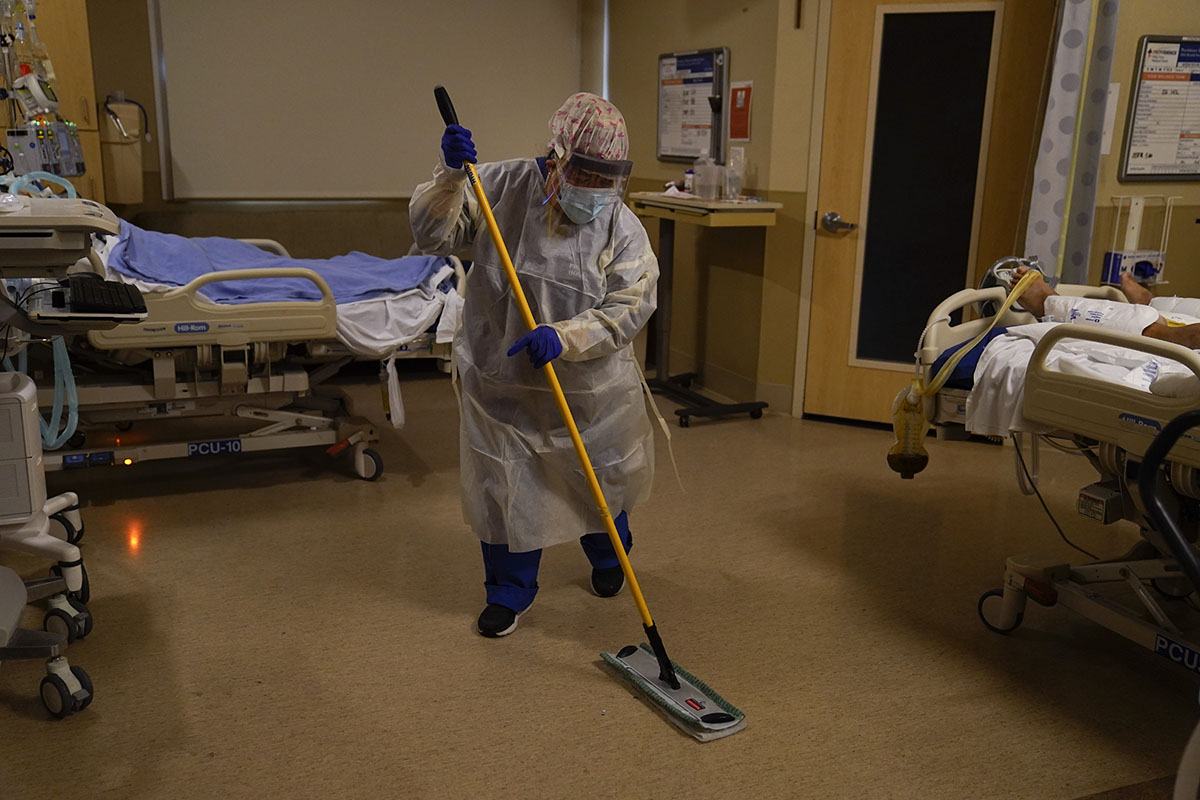Predicting COVID-19 Cases in Nursing Homes of California and Ohio: Does the Work Environment Matter?
Roy S, Collins JE, Boden LI, Katz JN, Wagner GR, Sorensen G, Williams JAR.
J Occup Environ Med. 2024 Jul 02. PMID: 38955810
Research Professor of Social and Behavioral Sciences
Social and Behavioral Sciences
Co-Director, Center for Work, Health, and Well-being
Social and Behavioral Sciences
Harvard T.H. Chan School of Public Health
Glorian Sorensen, PhD, MPH, stepped down as Professor of Social and Behavioral Sciences at the Harvard T. H. Chan School of Public Health in 2021. She is now semi-retired as a Research Professor and Co-Director of the Harvard Chan Center for Work, Health and Wellbeing. She also is on the faculty of Population Sciences at the Dana-Farber Cancer Institute.
The core of Dr. Sorensen’s research is randomized worksite-based studies that test the effectiveness of theory-driven interventions targeting changes in the work organization and environment as well as in workers’ safety and health behaviors. Her training in occupational sociology has provided a platform for focusing on the work organization and environment from a systems perspective.
She is the founding Director and Principal Investigator for the Harvard Chan Center for Work, Health and Wellbeing, funded since 2007, by the National Institute for Occupational Safety and Health (NIOSH) through its Total Worker Health® Program. Leadership of the Center is now shared with Dr. Erika Sabbath. The Center focuses on protecting and promoting worker safety, health and wellbeing through improved conditions of work. The Center conducts ground-breaking research to determine the effectiveness of workplace policies and practices designed to support and protect workers and to identify working conditions related to improved outcomes for employees and organizations. The Center also draws on decades of experience to disseminate evidence-based workplace policies and practices, and build organizational capacity to support worker safety, health and wellbeing. The Center also provides resources for employers to promote worker safety, health and well-being.
Dr. Sorensen and her research team were among the first to demonstrate that the integration of occupational health and safety with worksite health promotion can significantly enhance health behavior change among blue-collar workers. Her 1989 cluster randomized worksite intervention trial to integrate occupational health and safety and worker health behaviors demonstrated that this integrated approach significantly improved smoking cessation rates among blue-collar workers. Since then, she has designed and tested integrated interventions across a range of industries, including manufacturing, construction, health care, social service, and transportation, and with small and large worksites, in over a dozen large-scale trials. This research has focused particularly on low-wage and blue-collar workers, among whom on-the-job risks and risk-related behaviors are especially prevalent.
Dr. Sorensen has conducted a series of tobacco control studies in India since 2003, in collaboration with the Healis-Sekhsaria Institute of Public Health in Mumbai. There is a profound need for evidence-based interventions that promote tobacco control on a large scale, particularly in low- and middle-income countries. In India in 2010 alone, tobacco use accounted for over 1 million deaths. In the Bihar School Teachers Study, she and her colleagues demonstrated the efficacy of a tobacco use cessation intervention for school teachers in the state of Bihar. Dr. Sorensen's research in India, funded by the U.S. National Cancer Institute, has focused on developing and testing effective strategies for broad-based implementation of evidence-based tobacco control interventions using existing organizational infrastructures and accommodating the realities of low-resource settings.
Roy S, Collins JE, Boden LI, Katz JN, Wagner GR, Sorensen G, Williams JAR.
J Occup Environ Med. 2024 Jul 02. PMID: 38955810
Gupta PC, Narake S, Sinha DN, Nagler E, Pednekar MS, Sorensen G.
Prev Med Rep. 2023 Dec. 36:102476. PMID: 37908199
Peters SE, Dennerlein JT, Wagner GR, Sorensen G.
Lancet Public Health. 2022 02. 7(2):e188-e194. PMID: 35122760
Sorensen G, Peters SE, Nielsen K, Stelson E, Wallace LM, Burke L, Nagler EM, Roodbari H, Karapanos M, Wagner GR.
BMC Public Health. 2021 10 16. 21(1):1869. PMID: 34656090
Peters SE, Sorensen G, Katz JN, Gundersen DA, Wagner GR.
Int J Environ Res Public Health. 2021 07 05. 18(13). PMID: 34281131
Sorensen G, Dennerlein JT, Peters SE, Sabbath EL, Kelly EL, Wagner GR.
Soc Sci Med. 2021 01. 269:113593. PMID: 33341740
Nagler EM, Aghi M, Rathore A, Lando H, Pednekar MS, Gupta PC, Stoddard AM, Kenwood C, Penningroth B, Sinha DN, Sorensen G.
Health Educ Res. 2020 02 01. 35(1):60-73. PMID: 31999824
Peters SE, Nielsen KM, Nagler EM, Revette AC, Madden J, Sorensen G.
J Occup Environ Med. 2020 02. 62(2):e33-e45. PMID: 31815814
Sorensen G, Peters S, Nielsen K, Nagler E, Karapanos M, Wallace L, Burke L, Dennerlein JT, Wagner GR.
Int J Environ Res Public Health. 2019 04 24. 16(8). PMID: 31022886
Sabbath EL, Yang J, Dennerlein JT, Boden LI, Hashimoto D, Sorensen G.
Am J Public Health. 2019 04. 109(4):618-625. PMID: 30789763
Harvard Chan School researchers explored the implications of the COVID-19 pandemic for the future of work and worker safety, health, and wellbeing, in a Lancet Public Health article.
Since 2007, the mission of the Center for Work, Health, & Well-being at Harvard T.H. Chan School of Public Health has been to identify and promote the workplace policies, programs, and practices that foster safe and healthy working…

At a recent symposium hosted by Harvard T.H. Chan School of Public Health’s India Research Center, experts from India and Harvard’s Longwood Medical Area came together to share the latest research on preventing, diagnosing, and treating oral cancer.

People in Boston who “sleep rough”—live on the streets instead of in shelters—have a death rate that is nearly three times higher than those living in shelters and nearly 10 times higher than that of the general population…
Researchers from Harvard T.H. Chan School of Public Health and Dana-Farber Cancer Institute are taking a new approach to studying cancer risk among firefighters. They have partnered with the Boston Fire Department to conduct a novel exposure assessment…